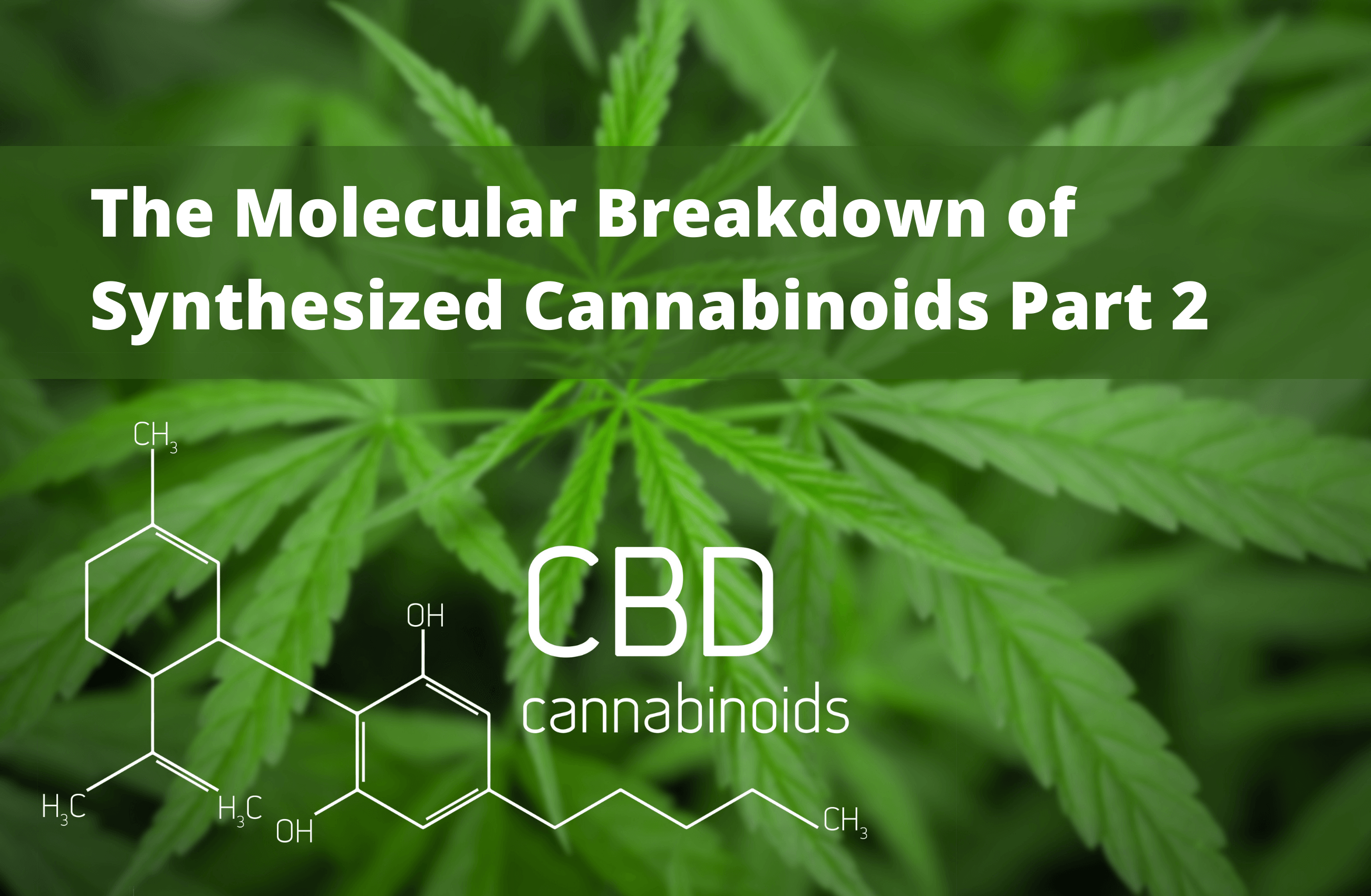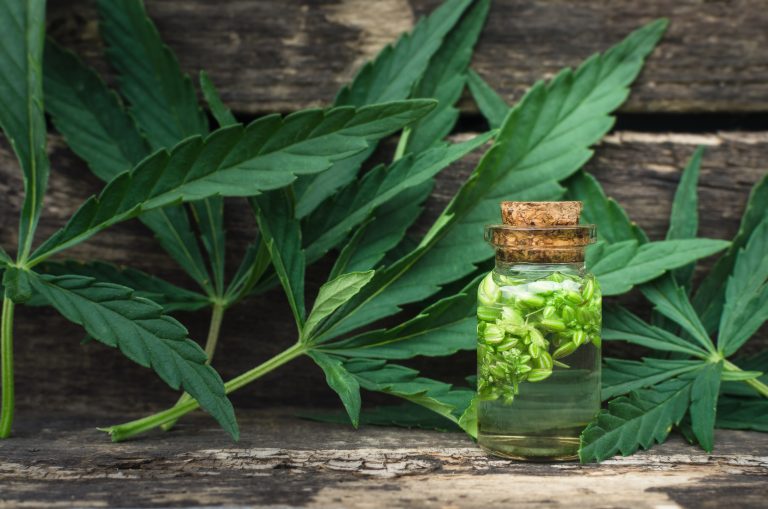This blog article is a continuation of “The Molecular Breakdown of Synthesized Cannabinoids Part 1“.
Discovering Delta-8
Delta 8 was developed starting with CBD isolate. As isomers, the CBD molecule is similar to the THC molecule. The CBD molecule’s center carbon ring is incomplete. The chemical process to complete this carbon ring and turn CBD into THC also results in placing the double-bond in the eighth position in the carbon ring instead of the ninth. It was then discovered that this creates a gentler and less psychoactive high compared to THC-9, or Delta8.
Developing Delta-10
Delta-10 was developed after the success of Delta-8. It was derived that if a molecular process could create one THC variant, it could create another. Again, CBD was used and the center carbon ring closed, this time placing the double-bond on the tenth position of the outermost carbon ring. It was found that this formation was more energizing while Delta 8 is typically more chill. An interesting discovery for molecule design and neurotransmitter receptors.
Converting to THC-0
The last step, THC-0, is developed from Delta-8, which is developed from CBD. THC-0 takes a Delta-8 molecule and grafts on an oxygen acetate group on top of the first carbon ring.THC-0 has been found to be extremely potent and psychoactive compared to the original THC Delta-9 and the other synthesized variants, Delta-8 and Delta-10. THC-0 might be as much as 300% more potent in terms of both mental and physical effects.
Why the Molecules Matter
Legality
So why are we synthesizing cannabinoids when we can cultivate potent greens? The answer comes from three interesting and valuable perspectives. The first is, of course, finding ways to enjoy THC in non-legal states. States that only permit the cultivation of hemp-ratio cannabis also prevent their residents from enjoying the personal and medical benefits of the full range of cannabinoids, and innovation is always profitable where there is demand.
Scarcity
The second reason is scarcity. CBG, Delta-8 THC, and Delta-9 THC are found naturally in the cannabis plant, but only in very small trace amounts. If they have unique properties and benefits – which they appear to from preliminary study – it would be impractical and costly to try and extract meaningful amounts from stems and leaves, and far more efficient to spin out the test, medical, and recreational quantities from the more abundant CBD molecule.
Science
The third reason is one of science, and not just what’s being done in the labs today. Until cannabis is reclassified as a Schedule 1 drug, most institutes cannot study cannabinoids derived from anything but hemp-based products. Synthesized THC analogs and artificial CBG (along with the growing list of other synthesized lesser cannabinoids) make it possible to conduct federally legal studies with the full range of natural and unnatural cannabinoids to find the full scope of benefits and medical potential.
The Future of Cannabinoid Synthesis
The future of THC analogs and synthetic cannabinoids is starting to take shape. Only a year ago, it seemed a risky endeavor on the part of CBD brands in non-legal states. Now, however, we are already seeing the massive scientific and medical value of further studying hemp-derived cannabinoid isomers.
As for how you should move forward with your established cannabis business, think safe and think ahead. CBD brands in non-legal states still have the most to gain from developing products from unregulated THC analogs. If you choose to stock or develop synthetic cannabinoids, identical testing rigors will provide your customers with the transparency they need to make safe, informed choices in this new market of molecules.
Here at MaxQ Technologies, we keep our eye on the horizon for cannabis industry developments and solutions. For more industry insights or cannabis business software to empower your operation, contact us today.





